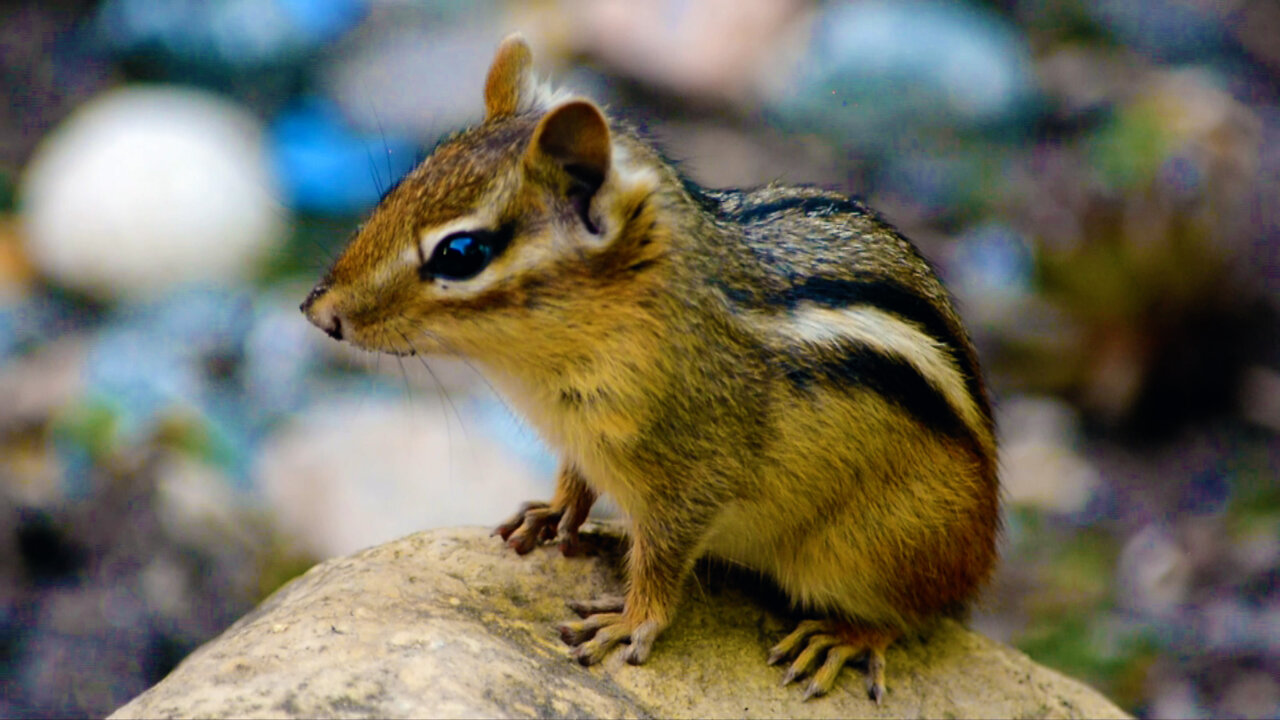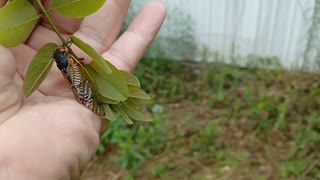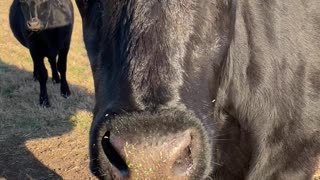Premium Only Content

Up close and personal - with a chipmunk!
I decided to experiment with staying as silent and unmoving as I could, while relaxing with a drink in a comfortable chair on my backyard deck. Right in front of me I set up a tripod with my Canon 80D with a 300 mm lens. I sat back and listened to music on my iPhone—with earbuds, so I wasn’t making a sound.
Very shortly, I was rewarded with a great up-close-and-personal visit from a chipmunk!
She didn’t seem to mind the peeling paint on my old garage one bit as she enjoyed a veritable feast of maple tree seeds (this IS Canada…) and pond-water while keeping a very keen ear and eye out for those children happily playing nearby. Her whole body seemed poised for escape if they came any nearer, but she seemed satisfied that there was no danger, and kept on munching. When her little one appeared, however, she made sure the youngster understood it was to stay under the garage until further notice!
Chipmunks always seem to be moving so fast that it’s hard to get more than a little glimpse of them. But by maintaining my silent and unmoving stance, I was able to observe all the details this time. Such beautiful eyes. Notice how delicate and intricate their hands and feet are, and that the stripes go all the way over the back and continue down the tail. The precise action of their delicate hands demands a slow-motion camera to really catch what they’re doing when they eat, or even just scratch. Is that chipmunk using his tail to wash and “towel off”?
Chipmunks are basically pygmy squirrels. They’re known for their burrowing habits and love of nuts. They scamper along the ground, but they are also expert climbers.
The chipmunks’ call is a shrill chirring or chirping. Their signature behavior, so to speak, is to stuff seeds and nuts into their cheek pouches. Just one tiny chipmunk can gather up to 165 acorns in one day! They carry them to a burrow to be stored for later use. Most chipmunks do not accumulate significant fat, so they depend upon this cached food during the long winter, during which they wake from their hibernation at intervals for feeding. Their young are typically born in the spring, two to eight per birth, after about a month’s gestation.
Chipmunks usually grow to no more than 6 inches in length, with a 3-inch tail, and the average chipmunk weighs less than one pound. Their lifespan is two to three years in the wild. And while the “wild” can be their ideal forest habitat, they also often live comfortably in cities wherever trees, water, and someplace to burrow are available. Chipmunks dig two types of burrows: shallow burrows in which they seek refuge while foraging during the day, and deeper, more complex burrows where they nest, store food and spend most of the winter months. They rarely venture further than 1/3 mile from their burrows at any time.
They’ve got lots of places to burrow around my house, and fresh water is available in the pond. All I have to do is get myself to sit still and I will likely get to observe more of their talents and cuteness.
-
 24:50
24:50
AmplifiedLIFE
5 months ago $0.02 earnedWHO Blew Up the Television?!
163 -
 1:01
1:01
BuddyAlligator
3 years ago $0.01 earnedUp close and personal with an alligator
271 -
 0:15
0:15
LG Homestead
3 years agoMole SKELETON
39 -
 1:02
1:02
trump20204ever
3 years agoUp close and very personal
15 -
 0:26
0:26
MaxandKatietheGreatDanes
3 years agoGreat Dane Gets Up Close And Personal With Look A Like Toy Cow
2052 -
 4:23
4:23
TruckNTech
3 years ago $0.09 earned17 year Cicada, up close and personal.
55 -
 15:30
15:30
ViralHog
5 years ago $0.01 earnedUp Close and Personal with a Texas Tornado
150 -
 0:29
0:29
MrJustDIY
4 years ago $0.01 earnedPraying Mantis gets up close and personal with the camera.
441 -
 1:25
1:25
MaxandKatietheGreatDanes
3 years ago $0.01 earnedBouncing Great Dane Gets Up Close And Personal With Iphone Camera
147 -
 0:13
0:13
PlutoBirdie
3 years agoCow gets up close and personal
2071